In a world where convenience often trumps caution, many are unaware of the hidden dangers lurking within everyday meals. Recent studies have revealed alarming levels of plastic-related chemicals in various foods, linking them to potential health risks, including cancer. These substances, such as phthalates and bisphenol A (BPA), can seep into foods from plastic packaging, containers, and wrappers. As these invisible invaders infiltrate our diets, they pose threats to reproductive health, hormonal balance, and even neurological development. By highlighting these 17 surprising culprits, we aim to shed light on the pervasive issue of plastic contamination and empower readers to make safer dietary choices.
1. Canned Peaches
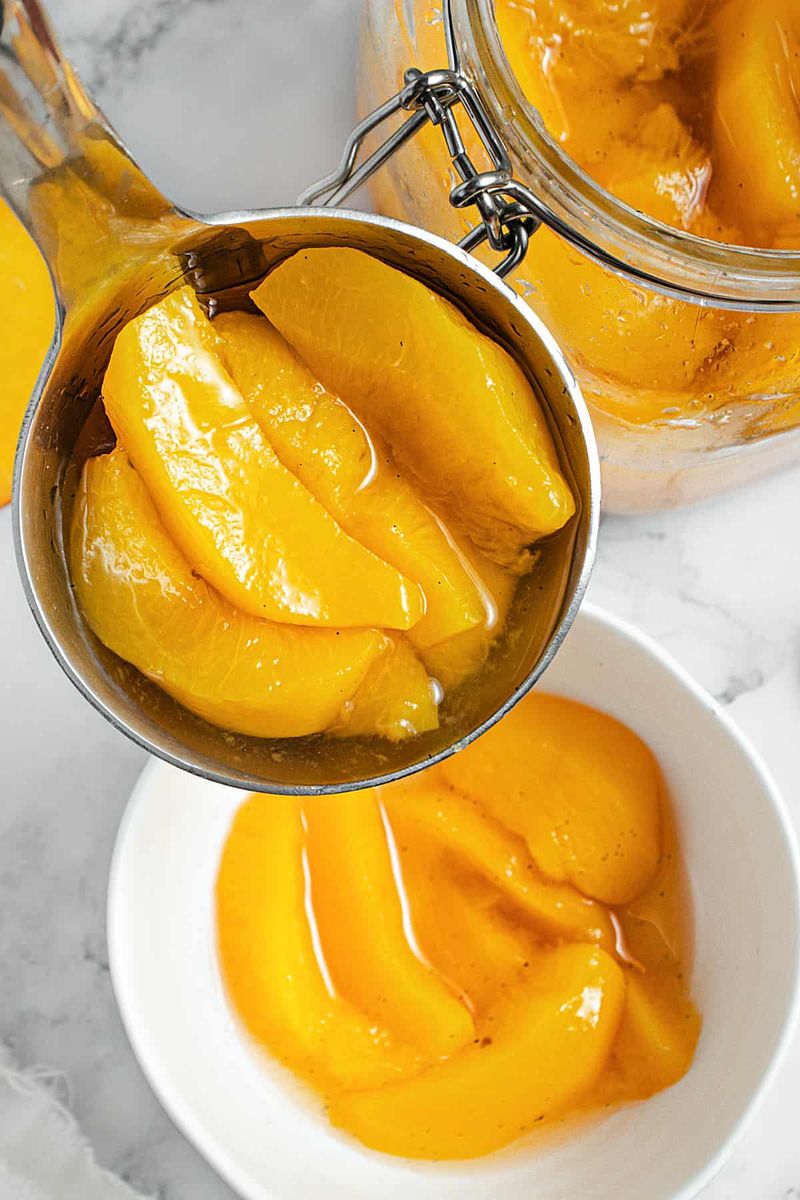
Canned peaches, a sweet and convenient treat, often come with a hidden side of phthalates. These chemicals, used in the lining of metal cans, can seep into the fruit and syrup, creating potential health risks. The cheerful, sunny appearance of the peaches belies the invisible danger lurking within. Studies have found surprisingly high levels of phthalates in canned peaches, raising concerns about their long-term consumption. For those seeking a safer alternative, fresh or frozen peaches can provide the same delightful taste without the associated chemical worries. This revelation urges consumers to rethink their reliance on canned goods.
2. Canned Salmon
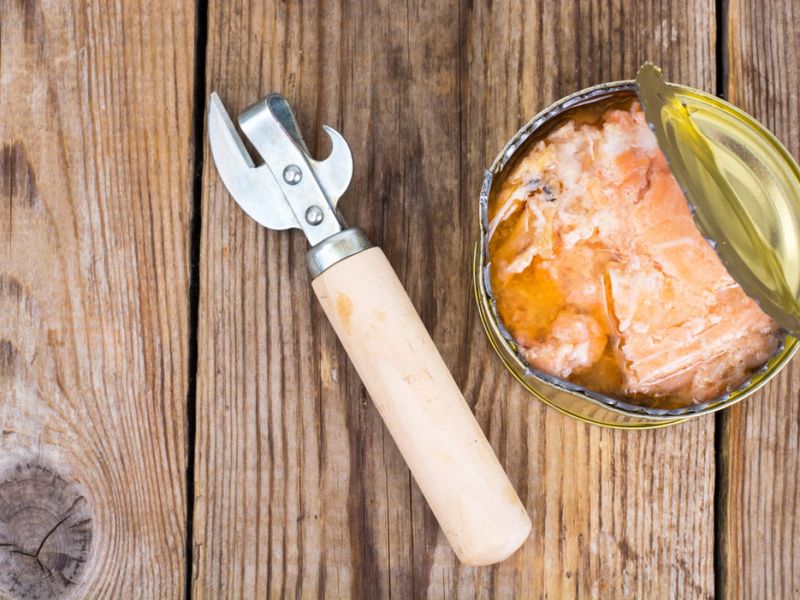
Canned salmon offers a convenient source of protein, yet it carries the unwelcome baggage of phthalates. These chemicals, prevalent in the can’s lining, can leach into the salmon, posing health risks. With its rich, pink hue, the fish presents a wholesome image, but the reality may be less benign. Studies highlight the need for caution among consumers who frequently turn to canned seafood. Opting for fresh or frozen salmon becomes a healthier choice, reducing exposure to these detrimental substances. As awareness grows, the demand for safer packaging alternatives is increasingly crucial.
3. Wendy’s Crispy Chicken Nuggets
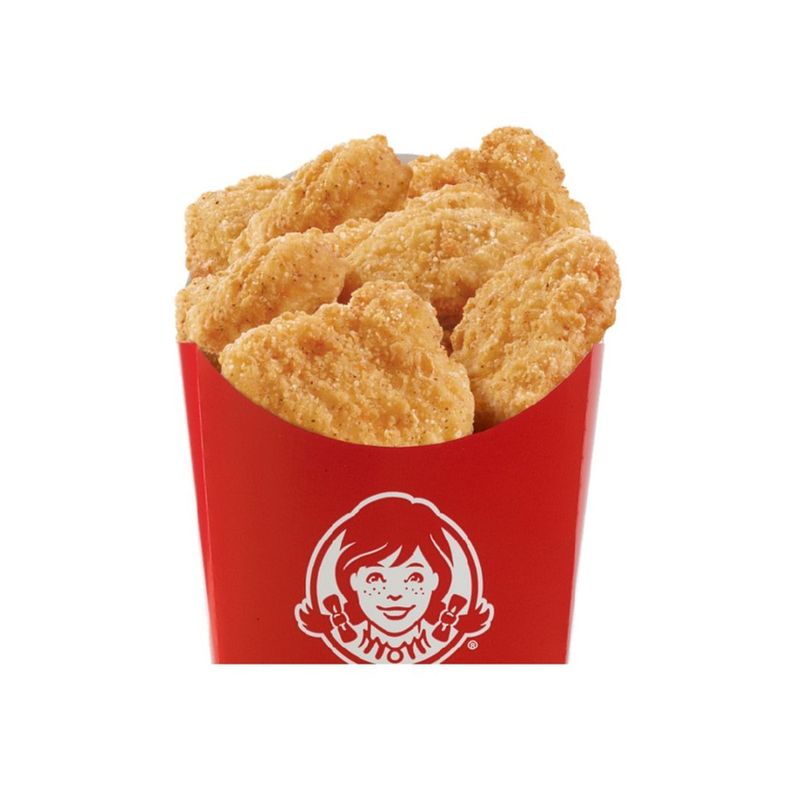
Wendy’s crispy chicken nuggets, beloved for their crunchy texture, harbor a secret: contamination with phthalates. These chemicals, found in food packaging and processing equipment, can infiltrate the nuggets, raising health concerns. While biting into these nuggets might evoke comfort, the reality is a reflection of broader issues within fast food preparation. Consumers may find solace in homemade alternatives, using fresh ingredients and avoiding the pitfalls of plastic contamination. As fast food chains face increased scrutiny, the push for transparency and safer practices becomes ever more critical.
4. Chipotle Chicken Burritos
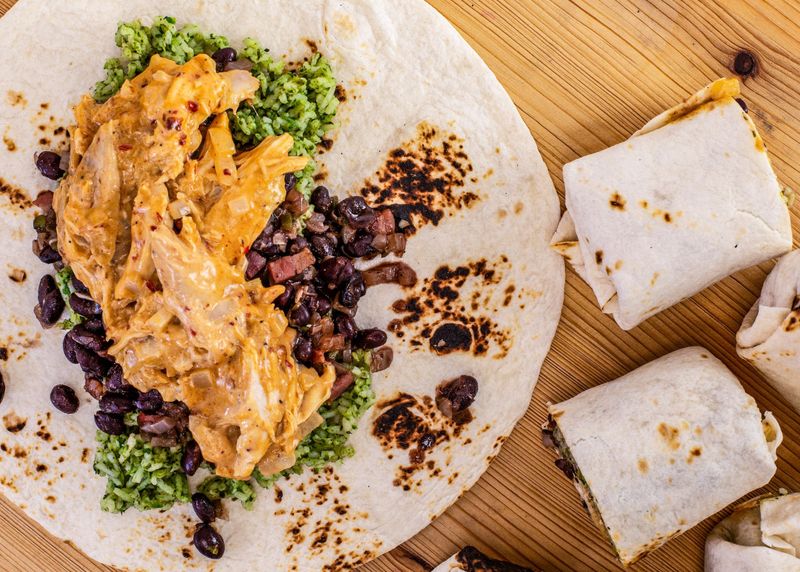
Chipotle chicken burritos, popular for their hearty flavors, are not immune to plastic-related chemicals. Phthalates, entering through packaging and handling, can affect the contents. While the aroma and taste may entice, the underlying risks highlight the need for vigilance. Lovers of Mexican cuisine may consider preparing their burritos at home, bypassing the unwanted additives. This shift not only enhances flavor control but also minimizes health risks. As consumers become more informed, there’s a rising call for change in how our favorite dishes are packaged and served.
5. Burger King Whoppers
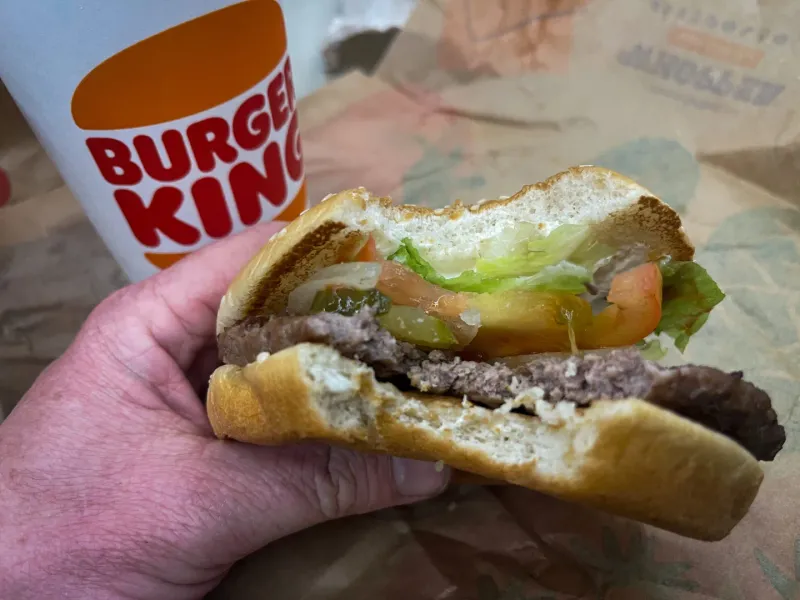
Burger King Whoppers, iconic in fast-food culture, mask a concerning truth. The burger’s components may contain phthalates from various stages of production and packaging. While the Whopper’s robust flavor and texture tempt the taste buds, the potential health implications demand closer examination. Fast food enthusiasts might explore homemade burger recipes, ensuring quality control over ingredients and preparation methods. This move not only satisfies cravings but also reduces exposure to harmful substances. As discussions around food safety continue, the fast-food industry faces pressure to adapt and innovate.
6. Bottled Water
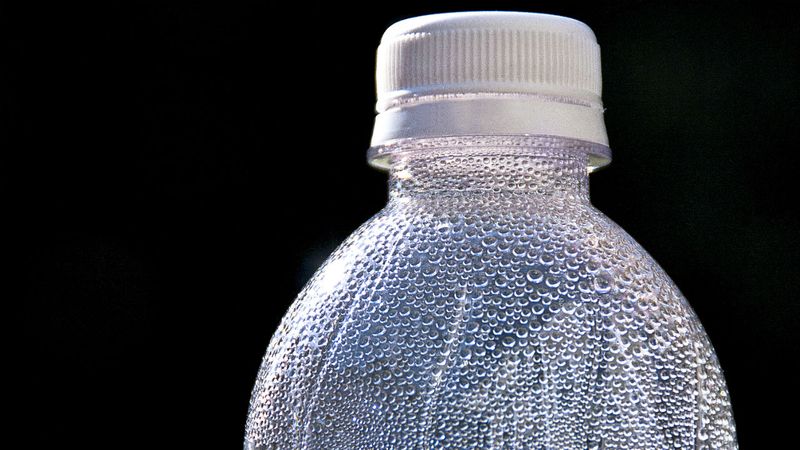
Bottled water, often chosen for its convenience, may contain microplastics. These tiny particles, originating from bottle materials, pose health concerns despite their invisibility. The refreshing look and feel of bottled water can be misleading, with studies detecting microplastic presence in most samples. Consumers seeking purity might prefer using glass or stainless steel bottles to minimize exposure. This consideration not only benefits health but also supports environmental sustainability. As awareness increases, the bottled water industry faces challenges in assuring consumers of product safety and ecological responsibility.
7. Yoplait Original French Vanilla Yogurt
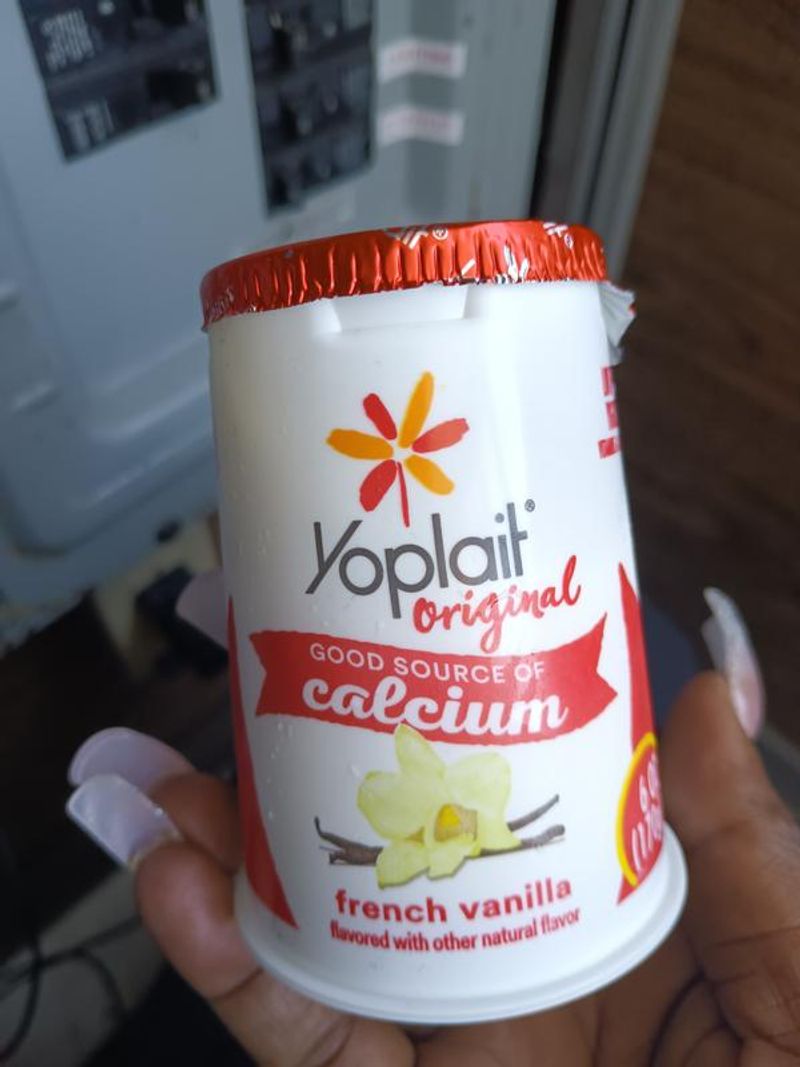
Yoplait Original French vanilla yogurt, with its creamy texture, harbors a hidden risk: phthalates. These chemicals, present in plastic containers, can migrate into the yogurt, posing potential health hazards. The familiar and comforting aroma of vanilla should be enjoyed without such concerns. For those wary of these additives, switching to brands using glass containers or homemade options can provide peace of mind. This change not only enhances the yogurt experience but also aligns with health-conscious choices. As consumers demand safer packaging, the industry is urged to evolve accordingly.
8. Annie’s Canned Organic Cheesy Ravioli
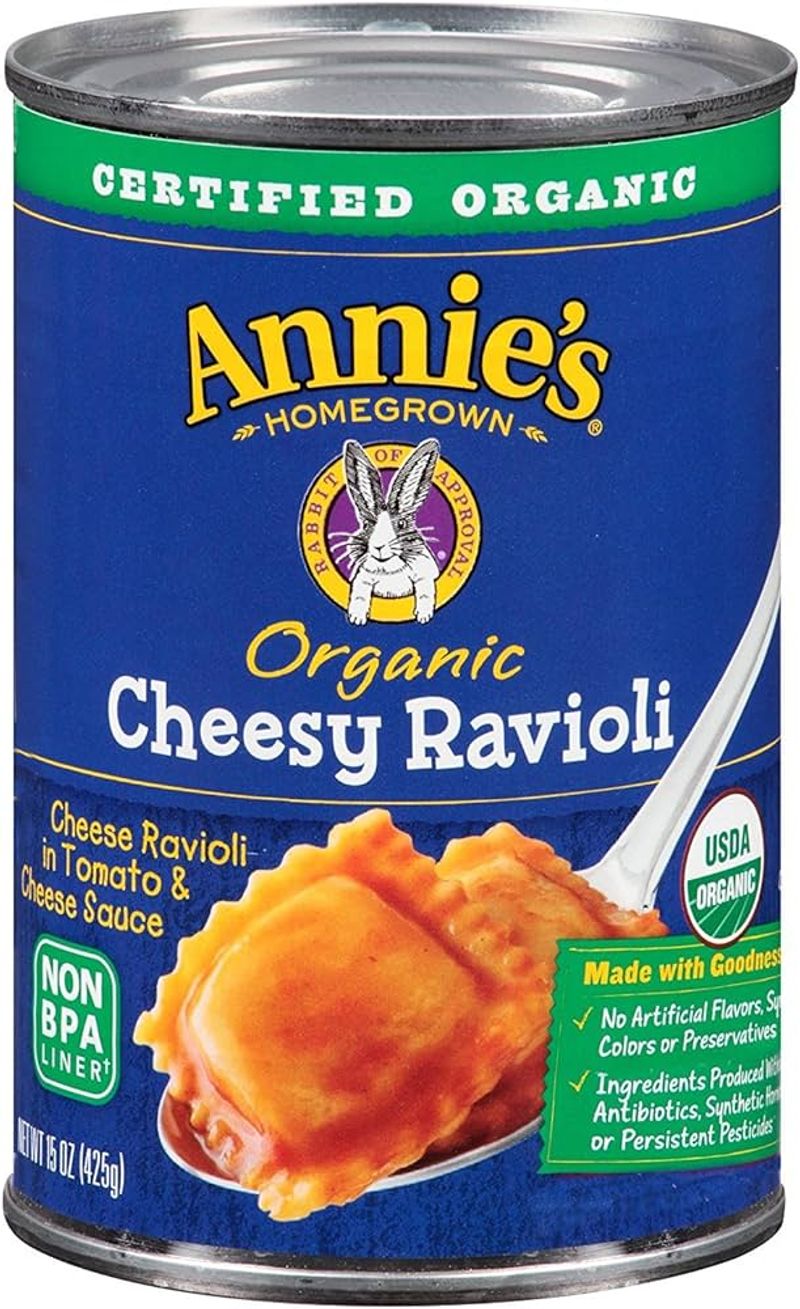
Annie’s canned organic cheesy ravioli, often chosen for its convenience and flavor, is not free from phthalates. These substances, present in the can lining, can seep into the ravioli, raising health concerns. The enticing aroma of the cheesy tomato sauce might mask these underlying risks. For pasta lovers, opting for freshly made ravioli or alternatives in glass jars offers a safer dining experience. This approach not only enhances taste but also supports health-conscious eating. As awareness spreads, consumers increasingly demand transparency and safer packaging from food manufacturers.
9. Packaged Deli Meats
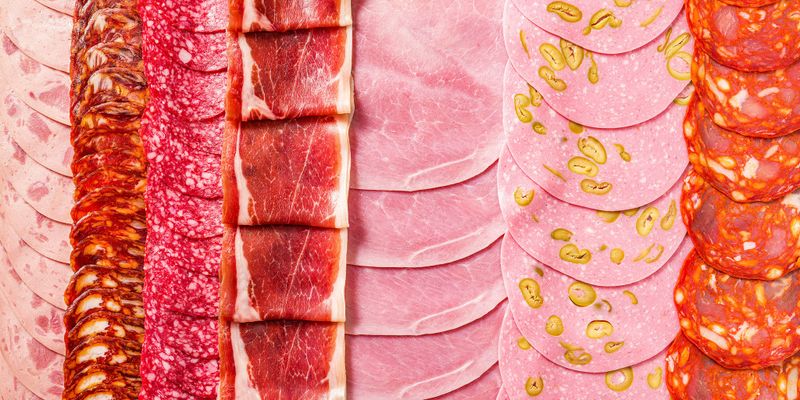
Packaged deli meats, a staple in many diets, come with a side of risk: phthalates. These chemicals, often found in plastic packaging, can leach into the meats, posing health threats. The convenience of grabbing a quick sandwich may overshadow these concerns. For those mindful of additives, choosing freshly sliced meats from the deli counter or opting for home-cooked options becomes appealing. This choice not only ensures quality but also aligns with health priorities. As consumers become more informed, there is a growing push for changes in packaging practices across the food industry.
10. Microwave Popcorn
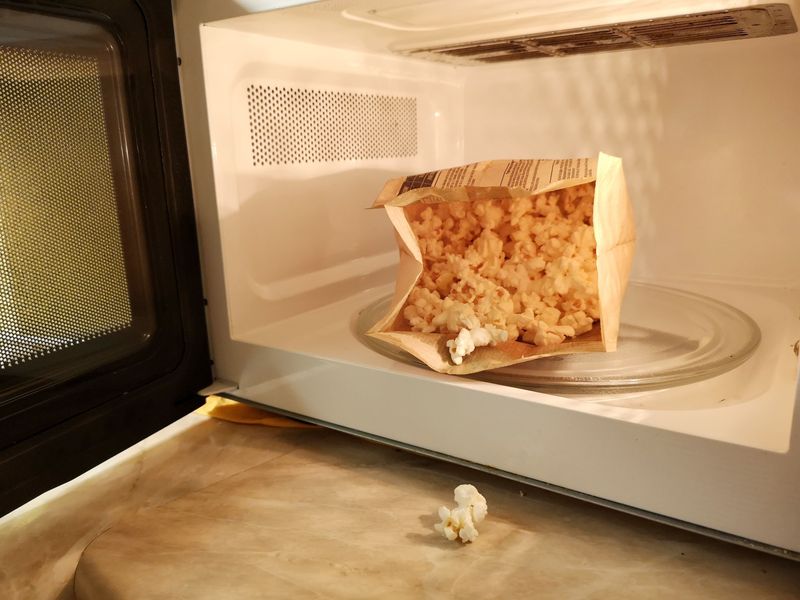
Microwave popcorn, a favorite snack for movie nights, may harbor hidden dangers. Phthalates from the bag lining can migrate into the popcorn, posing health risks. The irresistible aroma of buttered popcorn should not come with such invisible threats. For those who relish this crunchy treat, air-popped popcorn with fresh ingredients offers a safer alternative. This method not only enhances flavor but also aligns with conscious eating habits. As awareness of packaging chemicals grows, there’s increasing demand for safer, eco-friendly options within the snack food industry.
11. Fast Food Pizza

Fast food pizza, convenient and delicious, can contain phthalates from packaging and processing materials. These chemicals may leach into the pizza, creating potential health problems. While the cheesy, savory aroma entices, the chemical burden urges caution among consumers. Those seeking a healthier slice might consider homemade options, using fresh ingredients and avoiding harmful additives. This choice not only satisfies pizza cravings but also supports a health-conscious lifestyle. As the conversation around food safety continues, the pizza industry faces pressure to improve transparency and reduce chemical exposure.
12. Plastic-Packaged Cheese
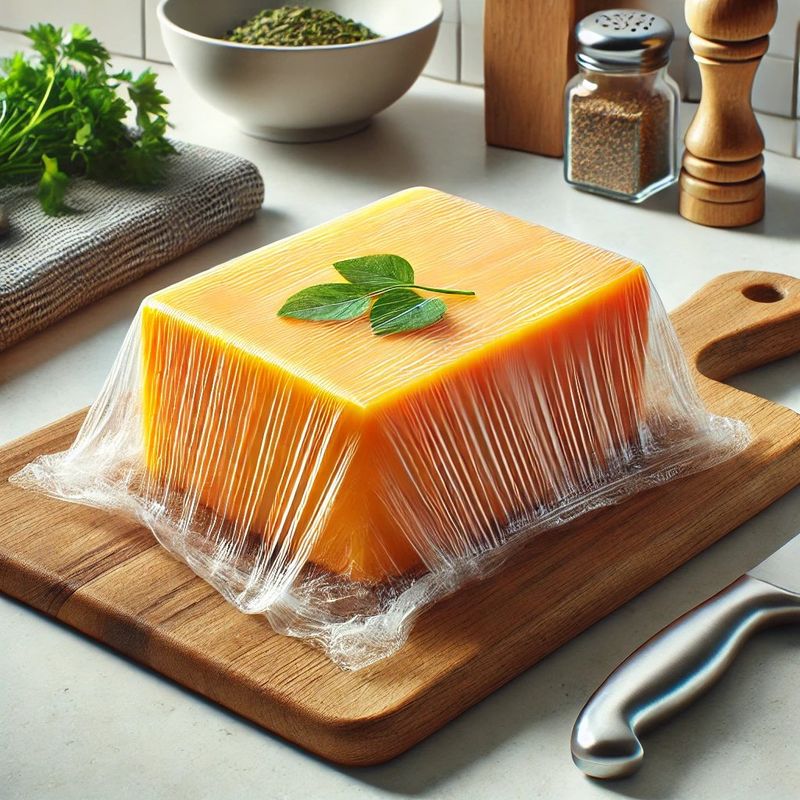
Plastic-packaged cheese, a common fridge staple, carries the risk of phthalates. These chemicals can transfer from the plastic into the cheese, raising health concerns. The smooth, creamy texture of cheese should not be marred by such invisible additives. For those mindful of their health, choosing cheese wrapped in wax or stored in glass containers offers peace of mind. This decision not only enhances cheese quality but also aligns with health-conscious and eco-friendly practices. As consumers demand safer options, the dairy industry is prompted to adopt better packaging methods.
13. Canned Soups
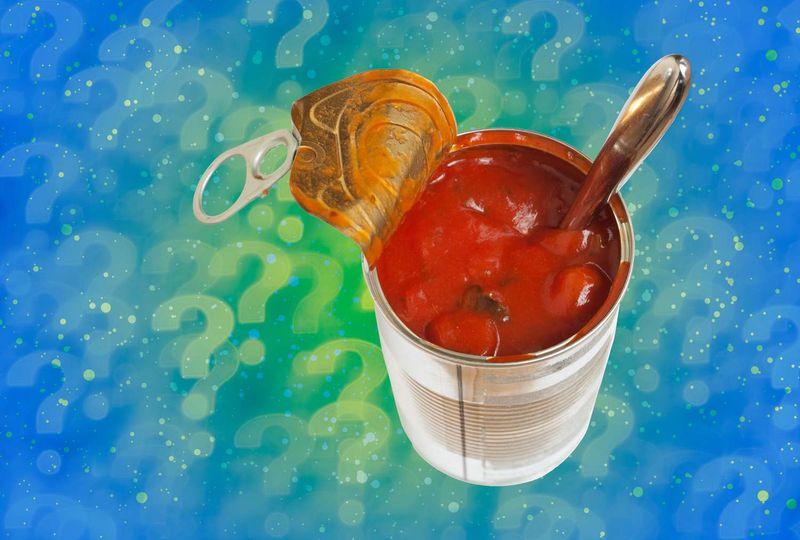
Canned soups, a comforting staple, may contain phthalates from can linings. These substances can seep into the soup, posing risks despite the heartwarming nature of a hot bowl. For those who enjoy this classic dish, homemade versions using fresh, natural ingredients can provide a safer alternative. This option not only elevates flavor but also supports a wholesome lifestyle. As awareness of packaging chemicals increases, consumers increasingly call for transparency and safer options from manufacturers. The soup industry faces the challenge of meeting these demands for healthier products.
14. Frozen Dinners
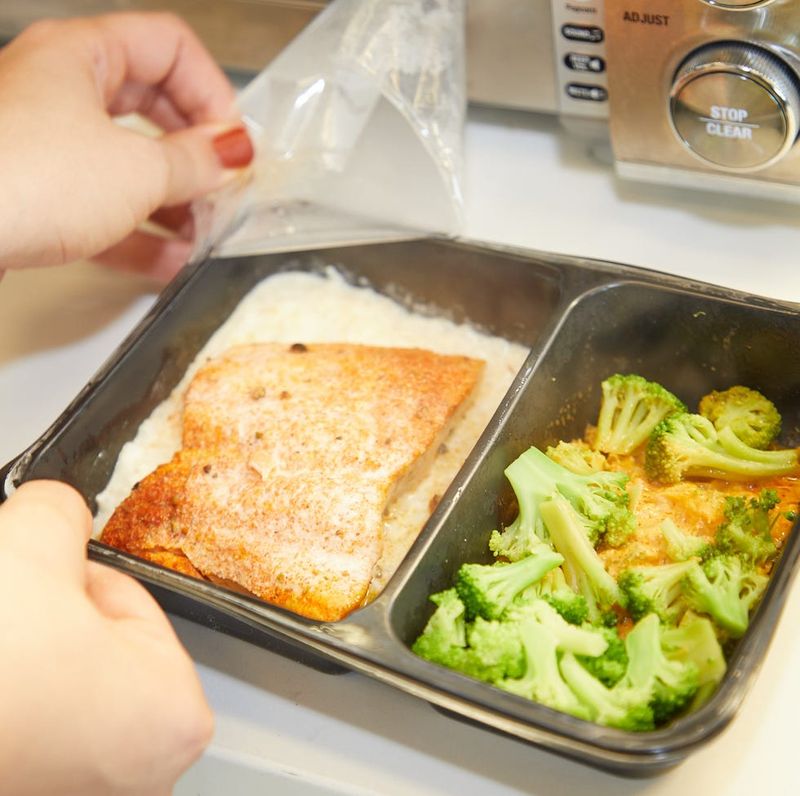
Frozen dinners, known for their convenience, may contain phthalates from packaging materials. These chemicals can migrate into the meals, posing health risks. The ease of a ready-to-eat meal might obscure these concerns. For those seeking healthier options, preparing meals from scratch or choosing brands with eco-friendly packaging offers reassurance. This choice not only enhances meal quality but also aligns with health-conscious and environmentally friendly values. As consumers become more aware of these issues, there’s a growing demand for innovation in packaging within the frozen food industry.
15. Pre-Packaged Salads
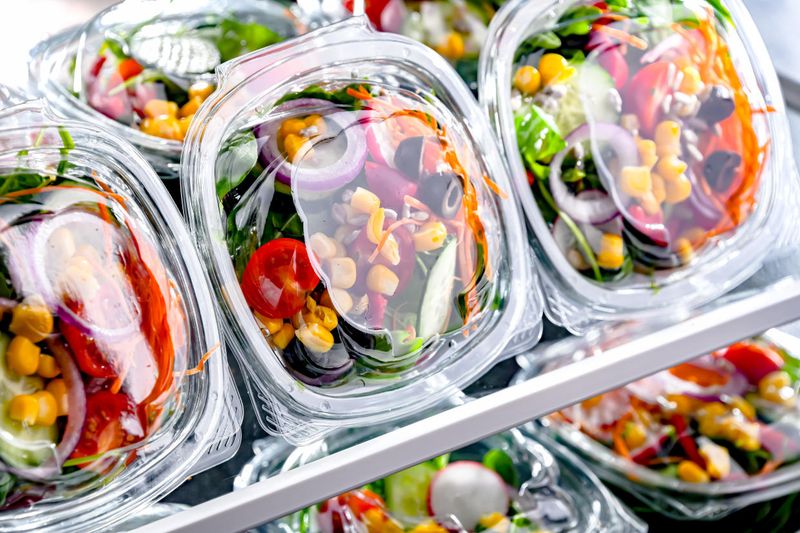
Pre-packaged salads, a go-to for quick, healthy meals, may contain phthalates in the packaging. These chemicals can migrate into the greens, raising health concerns. While the fresh appearance of a salad is appealing, awareness of such risks encourages alternative choices. For those seeking peace of mind, assembling salads with fresh, local ingredients offers a solution that enhances both taste and safety. This approach not only supports personal health but also aligns with sustainable eating practices. As consumers demand safer options, the salad industry faces increased pressure to innovate and improve packaging.
16. Juice in Plastic Bottles

Juice in plastic bottles, popular for its refreshing qualities, may contain phthalates from the container. These chemicals can leach into the juice, posing health concerns. The vibrant color and fruity aroma should not be overshadowed by such risks. For juice lovers, selecting beverages in glass bottles or preparing fresh juice at home provides a healthier alternative. This choice not only enhances the juice experience but also supports environmentally friendly practices. As awareness grows, the beverage industry is urged to rethink its packaging strategies, aligning with consumer demands for safety and sustainability.

Well, hello there!
My name is Jennifer. Besides being an orthodontist, I am a mother to 3 playful boys. In this motherhood journey, I can say I will never know everything. That’s why I always strive to read a lot, and that’s why I started writing about all the smithereens I came across so that you can have everything in one place! Enjoy and stay positive; you’ve got this!

